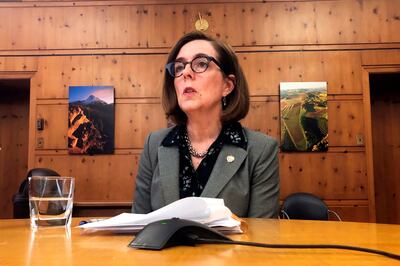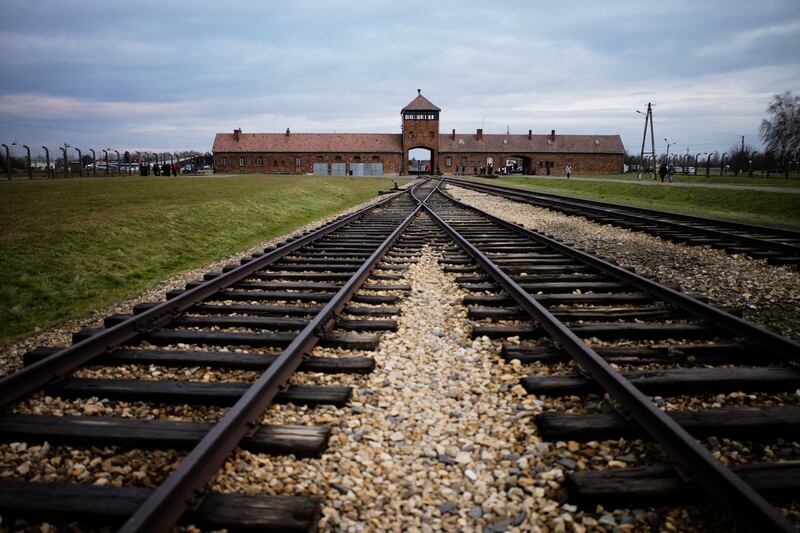SALT LAKE CITY — Most Americans have a basic understanding of what the Holocaust was and when it happened, but far fewer are familiar with the details that may matter most today.
Just 43% of U.S. adults know that Adolf Hitler, who directed Germany’s persecution of Jews, came to power through the democratic process. One-quarter wrongly believe he violently overthrew the government and 2% think he inherited his role, according to a new Pew Research Center report.
“Understanding the Holocaust is a way to understand where anti-Semitism left unchecked will take you.” — Rabbi Andrew Baker, director of international Jewish affairs for the American Jewish Committee
Confusion about how Hitler became Germany’s chancellor is part of broader misunderstandings over how the Holocaust began. People often act as if Jewish death camps appeared overnight and fail to recognize that persecution escalated gradually overtime, said Rabbi Andrew Baker, director of international Jewish affairs for the American Jewish Committee, to the Deseret News last year.
“There were laws enacted step by step that deprived (Jews) of their rights as citizens,” he said. The government “ultimately turned them into a despised and hated people.”
If you don’t understand this gradual process, then you might not grasp the significance of recent anti-Semitic incidents, Rabbi Baker said. In December, there were several attacks on members of the Jewish community in New York and New Jersey. In general, anti-Semitism is on the rise and so is Holocaust denial.
“It’s important to understand how the situation in Germany came to be what it was,” Rabbi Baker said.
Holocaust knowledge
Pew’s report doesn’t offer a full picture of people’s Holocaust knowledge. However, it does identify some common misconceptions and highlights which Americans are most likely to hold them.
“Knowing someone makes it harder to harbor prejudice or animosity.” — Rabbi Baker
The survey featured four multiple-choice questions and one open-ended request for a definition of the Holocaust. Just under half of U.S. adults (48%) answered at least three of the questions correctly and 84% knew the Holocaust has something to do with death, religious persecution or attacks on Jews.
“Most Americans know roughly when the Holocaust happened, but they’re less familiar with other topics,” said Becka A. Alper, a Pew research associate.
Around two-thirds of U.S. adults know the Holocaust took place between 1930 and 1950 and that “Nazi-created ghettos” were the parts of a town where Jews were forced to live, Pew found.
But they were confused about Hitler’s origins and the overall impact of the Holocaust. Only 45% correctly said that approximately 6 millions Jews were killed, the survey showed.
The report is based on a survey of more than 10,000 Americans conducted in February 2019.
In general, Americans with more exposure to the Jewish community and more education performed better than other adults, Pew reported. Additionally, Jews performed better than members of other faith groups, and so did atheists and agnostics.
By conducting an additional survey of 1,800 teenagers, Pew was also able to explore whether age plays a role in people’s Holocaust knowledge. The average adult correctly answered 2.2 questions out of 4, while teenagers averaged 1.8, Alper said.
“Like adults, more teens know when the Holocaust happened and what ghettos were than know the number of Jews who were killed or how Hitler became the chancellor of Germany,” she said.
Although teens performed worse than adults overall, researchers believe it had less to do with age than with education.
These teens “haven’t had the chance yet to pursue post-secondary education. Overall, they do about the as well as adults whose education ended with high school,” Alper said.
Mandating education
Knowledge of what happened during the Holocaust is not a cure-all for anti-Semitic behavior, but it’s a step in the right direction, according to Rabbi Baker and others. Americans who understand the horrors of Jewish ghettos or concentration camps are more committed to rooting out the hate that’s present in the world today.
“Understanding the Holocaust is a way to understand where anti-Semitism left unchecked will take you,” Rabbi Baker said.

Many policymakers have offered similar remarks when pushing for mandatory Holocaust education in primary or secondary schools. Since 2018, three states have passed such requirements and more have considered them, as the Deseret News reported in August.
“Today, more than ever, we need the learning opportunities that a bill like this will bring to our school,” said Oregon Gov. Kate Brown when she signed her state’s Holocaust education bill into law in July.
Oregon’s law, like similar measures in other states, urges teachers to do more than just have their students memorize basic Holocaust facts. It instructs them to use lessons on the Holocaust to spark conversations about “the immorality of ... genocide and other acts of mass violence, and to reflect on the causes of related historical events,” The Associated Press reported last year.
Teachers and other leaders should also encourage non-Jews to make connections with the Jewish community, which, as Pew’s report showed, can increase awareness of the significance of the Holocaust. Such relationships are a powerful safeguard against future violence, Rabbi Baker said.
“Knowing someone makes it harder to harbor prejudice or animosity,” he said.



